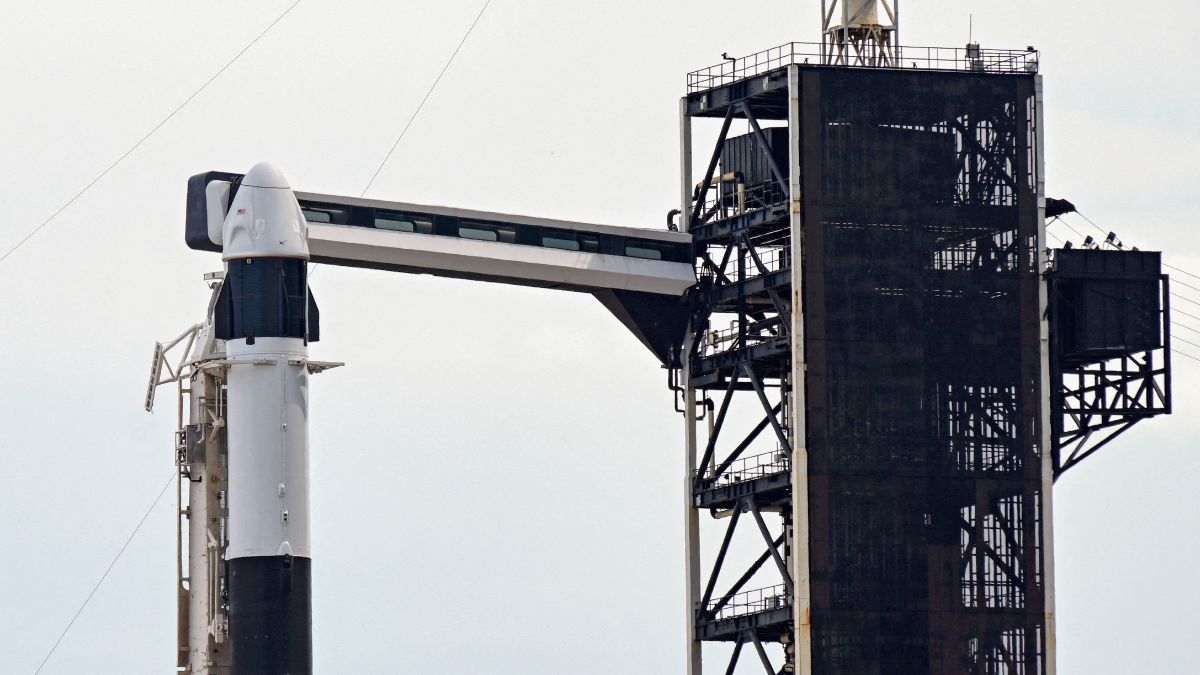Axiom-4 mission gets a new launch date after repeated delays
 A Falcon 9 rocket stands at the pad before its upcoming launch of the Axiom-4 crewed mission to the International Space Station at Launch Complex 39-A in Florida on June 10, 2025 | REUTERS
A Falcon 9 rocket stands at the pad before its upcoming launch of the Axiom-4 crewed mission to the International Space Station at Launch Complex 39-A in Florida on June 10, 2025 | REUTERS
After facing multiple technical challenges, the much-awaited Axiom-4 mission carrying Group Captain Shubhanshu Shukla to the International Space Station (ISS) has been rescheduled for June 19, 2025. This announcement came after the successful resolution of technical issues that had delayed the mission multiple times.
The mission faced two main technical problems that required careful attention. During a follow-on coordination meeting between ISRO, Axiom Space, and SpaceX, it was confirmed that the liquid oxygen leak observed in the Falcon 9 launch vehicle has been successfully resolved. This leak was discovered during routine pre-launch inspections and forced the postponement of the original June 11 launch date.
Separately, NASA is working with Roscosmos to understand a new pressure signature, after the recent post-repair effort of the International Space Station’s Zvezda service module. “The Zvezda module is part of the Russian segment of the ISS and provides essential life support systems. Cosmonauts aboard the space station recently performed inspections of the pressurized module’s interior surfaces, sealed some additional areas of interest, and measured the current leak rate. This issue has been under investigation for several years, but recent repair work created a new pressure pattern that required additional assessment,” explained space analyst Girish Linganna.
This mission holds tremendous historical significance for India. If successful, Shukla will become the first Indian astronaut to visit the ISS and the second Indian in orbit, after cosmonaut Rakesh Sharma, who flew to space in 1984, making it a 41-year gap between Indian space travellers.
Group Captain Shubhanshu Shukla, an experienced Indian Air Force test pilot, will serve as the mission pilot alongside Commander Peggy Whitson from the United States. He is a combat leader and seasoned test pilot with about 2,000 hours of flying experience in various aircraft, including the Su-30 MKI, MiG-21, MiG-29, Jaguar, Hawk, Dornier 228, and An-32. The crew also includes mission specialists from Poland and Hungary, making it a truly international collaboration.
During the 14-day mission, Shukla will conduct important scientific experiments related to space nutrition and food systems developed through collaboration between ISRO and NASA. The mission, a collaboration between NASA, SpaceX, and ISRO, aims to strengthen international spaceflight cooperation.
This mission serves as crucial preparation for India’s own Gaganyaan programme, which aims to send Indian astronauts to space using indigenous technology. The experience gained from this ISS mission will directly benefit India’s future space endeavours and strengthen the country’s position in global space exploration.
Sci/Tech